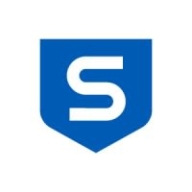


Check Point Harmony SASE and Sophos XGS are prominent security solutions in the market. User reviews indicate better satisfaction with Check Point Harmony SASE for its features and flexibility, but Sophos XGS stands out for its advanced threat management capabilities.
Features: Check Point Harmony SASE offers comprehensive access control, secure network management, and excellent flexibility. Sophos XGS is valued for its robust threat protection, integrated endpoint security, and superior security features.
Room for Improvement: Check Point Harmony SASE needs enhanced reporting tools, better performance, and a more intuitive interface. Sophos XGS should simplify configuration processes, improve third-party integration, and reduce product complexity.
Ease of Deployment and Customer Service: Check Point Harmony SASE is noted for straightforward deployment and consistent customer support. Sophos XGS receives positive feedback for deployment guidance but has mixed reviews on customer service responsiveness.
Pricing and ROI: Check Point Harmony SASE is competitively priced, offering good ROI especially for smaller enterprises. Sophos XGS, while more expensive, provides robust security features and comprehensive threat management, justifying the investment for many users.
Clients are now comfortable and not wasting productive hours on IT support.
We have experienced a positive return on investment by utilizing Fortinet's products.
There's definitely an ROI. Having a centralized way of managing and applying policies across the entire organization always helps.
We are saving 40% of our time, which is good.
The costs have increased with Sophos XGS in the last few years, with license prices going up by 30%, doubling from $2,500 to about $5,000, which is a big challenge for us.
He explained that it required a command line configuration, as it couldn't be done through the graphical user interface.
I would rate their support for FortiGate a nine out of ten.
They offer very accurate solutions.
Any issues are quickly addressed by their support team, which is not common among all OEM manufacturers.
The response time from Sophos technical support can be slow in most cases, which can be challenging.
Technical support from Sophos is always available.
They scale up really well from smaller models like the FortiGate 40 and 50 to bigger sites with the FortiGate 100 for more throughput - up to enterprise datacenters.
The variation comes in terms of the interfaces and throughputs, but from a security perspective, you get the same benefit, irrespective of whether you have an entry-level unit or an enterprise.
You can choose a cheaper model if you only have 20-30 users, but you will need to spend more money for a FortiGate solution that covers 5,000.
I would rate it nine out of ten for scalability.
I can change what I want easily without interfering with other services or routines.
I would rate its scalability seven out of ten since modules can be added.
Improper handling of these can lead to a memory surge, a well-known bug that can cause the entire system to freeze.
It is less stable than Palo Alto Networks and Check Point firewalls because there are lots of bugs in the latest firmware.
We have not had any problems with the operating systems or maintenance of subscriptions.
There are some lags and glitches with connectivity, so I would rate the stability as between seven or eight out of ten.
After the last improvement, I can say it is much more stable now.
It is rated at nine out of ten for stability and is very reliable.
Sophos XGS is stable now, and I would rate its stability as a ten out of ten.
When Sophos introduced firmware version twenty, there was a bug in DCC.
If I have put 10 GBPS of throughput on a firewall and I enable all of these features available, such as IPS or UTM functionalities, the throughput comes down to 1 GBPS.
By providing an integrated solution, users would have access to all features and functionalities within a single window, eliminating the need to navigate through multiple windows.
Investing in a solution that can accommodate such growth would be more cost-effective than repeatedly purchasing new hardware.
A local data center in Turkey would enhance the product, as currently, our Internet traffic goes to another country, which is problematic for us.
The connectivity issue can be improved as at times it lags when connecting to their server.
It would be beneficial if Sophos XGS offered an end-to-end solution with competitive pricing.
After version 18.5, creating a NAT rule has become more complex, requiring the creation of a separate policy and an additional component.
I have experienced multiple hardware complaints, particularly during firmware updates that sometimes cause crashes.
Secure SD-WAN is free of charge.
The most expensive part is the renewal of the license subscription.
FortiGate is priced lower than Palo Alto.
Cost efficiency is a consideration, as SASE products are not the cheapest security products.
It is a bit expensive.
The last instance I purchased was for three years, around $3,700 for SDG 125.
pricing is rated eight out of ten, indicating that it may be relatively expensive.
Sophos XGS is quite expensive, potentially a nine out of ten in terms of cost.
The firewall, IPS, and VPN functions are the most valuable features.
FortiGate provides solid protection against viruses, malware, and other threats.
Within the same dashboard, you get to see the security profiles, the type of traffic that's passing through, the top applications that are being consumed, etc.
The firewall management is the most valuable feature for me.
The best key features of Harmony are stabilization, private access, and Internet access.
It's able to detect cloud applications like Zoom or Microsoft Teams and allows traffic shaping based on the application.
I find it much easier than others, like FortiGate, which is complicated in its installation, but Sophos XGS is really easy.
The threat detection capabilities are effective, especially against CNC and certain viruses not coming through emails.



Fortinet FortiGate offers comprehensive network security and firewall protection across multiple locations. It effectively manages data traffic and secures environments with features like VPN, intrusion prevention, and UTM controls.
Organizations rely on Fortinet FortiGate for its robust integration with advanced security policies, ensuring significant protection for enterprises, cloud environments, and educational sectors. It facilitates network segmentation, application-level security, and authentication management, securing communication within and between locations such as branches and data centers. Its efficient SD-WAN and UTM features enable streamlined data management and enhanced threat protection capabilities. Users appreciate its centralized management, facilitating seamless operations across diverse environments.
What are the key features of Fortinet FortiGate?
What benefits should users expect from Fortinet FortiGate?
Fortinet FortiGate is crucial in sectors like education, offering robust networks for secure data flow between campuses and facilitating remote learning. In enterprise environments, it allows efficient management of application traffic and security across multiple branches, while in the cloud, it seamlessly integrates with diverse platforms to enhance security infrastructure.
Perimeter 81 is a cloud-based network security and software-defined perimeter (SDP) solution designed to provide secure access to resources in the cloud, data centers, and on-premises environments. It offers a unified platform for organizations to manage and secure their network infrastructure, regardless of the location or type of resources.
Perimeter 81 Benefits:
Perimeter 81 Features:
Reviews from Real Users
PeerSpot user, Frontend Developer at Limelight Networks, states that "We use some VPN solutions, and Perimeter 81 has the best user experience for desktop or mobile".
Daniel Goldfeld, Vice President of Customer Success at Mine - The All-in-One Privacy Suite, says that Perimeter 81 has "Great SAML and SCIM support with the ability to deploy site-2-site tunnels with specific IP restrictions".
Another PeerSpot user, Accounts Payable Specialist at Simera, writes that "The feature that I have found to be most valuable is the reputation that the company has regarding privacy. Nowadays, this is critical, especially when you do all of your work online."
Sophos XGS is a comprehensive network security solution designed to protect organizations from advanced threats. It combines next-generation firewall capabilities with advanced threat protection, web filtering, and application control.
XGS has powerful deep learning technology and can detect and block even the most sophisticated malware and ransomware attacks. It also offers granular control over web access, allowing organizations to enforce policies and prevent access to malicious or inappropriate websites. Additionally, XGS provides application control features, enabling organizations to manage and prioritize network traffic based on specific applications or user groups.
With its intuitive management interface and centralized reporting, XGS offers easy deployment and monitoring of network security.
We monitor all Firewalls reviews to prevent fraudulent reviews and keep review quality high. We do not post reviews by company employees or direct competitors. We validate each review for authenticity via cross-reference with LinkedIn, and personal follow-up with the reviewer when necessary.